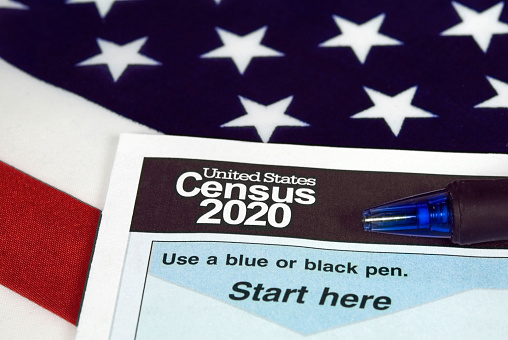The Supreme Court takes up today what’s widely considered its most important case of 2019: whether next year’s census should ask respondents if they are U.S. citizens.
Three federal judges — all appointed by President Barack Obama — have ruled that the question should not be included, in part because it would make the count inaccurate.
“Chief Justice John Roberts asked questions that seemed at times favorable to the administration, and Justice Brett Kavanaugh stressed that [Commerce Secretary Wilbur] Ross has discretion in the area and that other countries ask a similar question,” says CNN.
“The four liberal justices pounced on the administration’s argument, however, asking whether the addition of the question would reduce the number of respondents to the census.”
It’s estimated that the citizenship question would cause up to 6.5 million people to refuse to take part in the census, which is required by the Constitution to be held every 10 years.
“Although the information is confidential, those with ties to undocumented people might not trust the information to the Trump administration,” says the Washington Post.
The population count determines how many seats in Congress and how many votes in the Electoral College each state gets, as well as how congressional districts are drawn.
If millions of people refuse to take part in the census, the New York Times says, it could “reduce Democratic representation when congressional districts are allocated in 2021 and affect the distribution of hundreds of billions of dollars in federal spending.”
States that might lose seats in the House of Representatives, Electoral College votes and federal money include Arizona, California, Florida, Illinois, New York and Texas.
Commerce Secretary Wilbur Ross proposed adding the question after consulting with the Trump White House, notably with Steve Bannon, the president’s former chief strategist and a key proponent of the administration’s crackdown on immigration.
Ross then overruled the unanimous advice of experts in his own Census Bureau and ordered the citizenship question be added to the census form. But he tried to avoid taking responsibility for the idea.
“Emails show that Ross pressed Justice Department officials behind the scenes to send him the question and then, in public, claimed it was their idea, not his,” reports the Post.
“The emails also show that despite repeated entreaties, Justice Department officials refused at first to ask for the addition of the question, saying that it was unnecessary,” says NPR.
Ross’s stated reason for adding the question was to enforce the Voting Rights Act. But federal judges in California, Maryland and New York call that a “pretext,” implying a different motivation.
But, the Post says, “in its briefs to the court, the administration said Ross’s authority to add the question, rather than his motivations, is what is important.”
Opponents of the citizenship question disagree, and will tell the court so in today’s oral arguments.
“This government has shown a willingness to ignore both the Constitution and due process rights in order to deport as many people as possible. It’s not hard to see why people would be afraid to disclose their citizenship status, or that of a loved one,” wrote Dale Ho, director of the ACLU Voting Rights Project, in an email to supporters.



